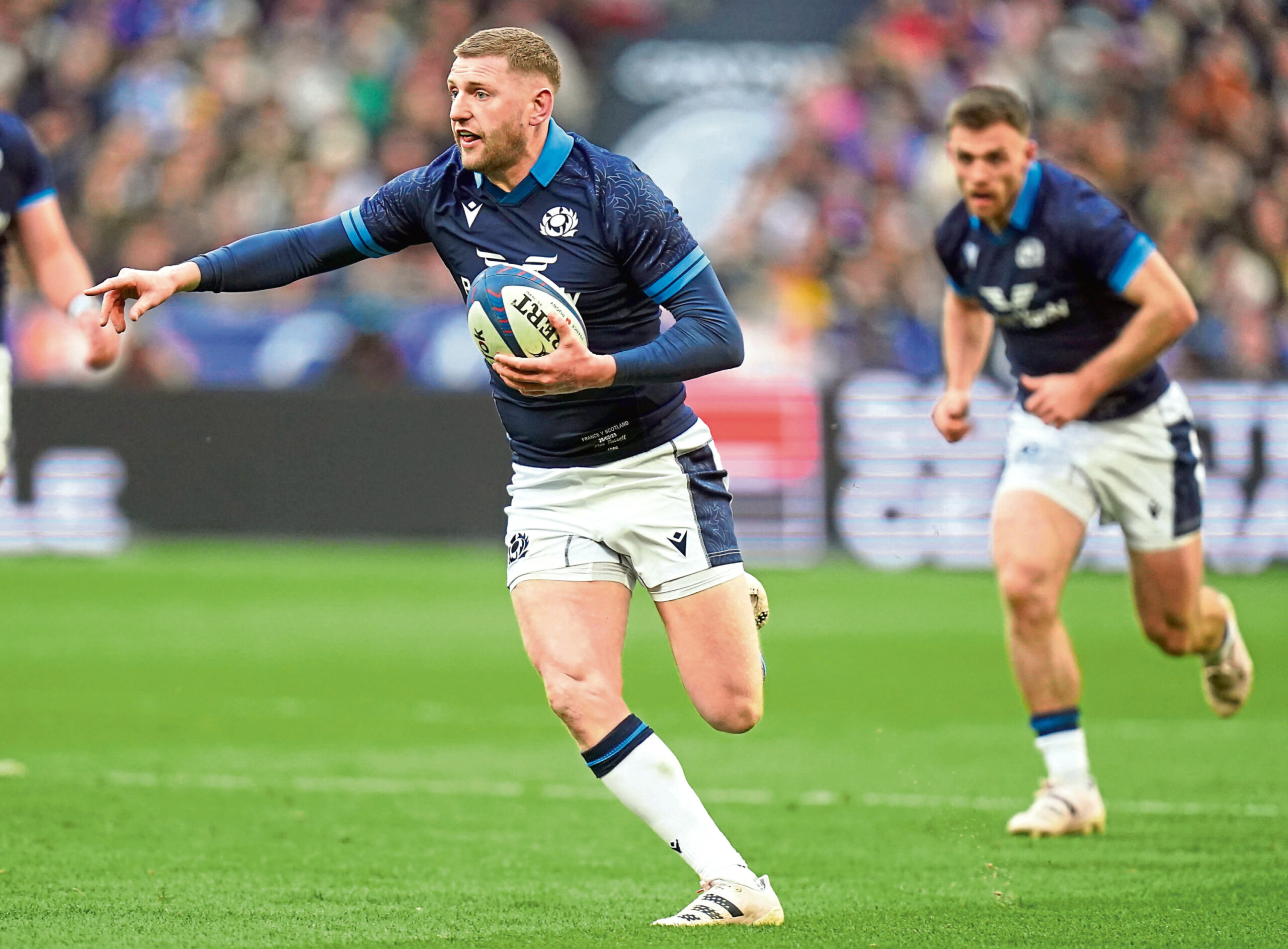There’s no shame in losing to the best – and particularly when you watched the lung-bursting efforts of Scotland’s players at Murrayfield on Sunday.
For the first 50 minutes of their Six Nations tussle with Ireland, they were competitive, in their opponents’ faces, ready to turn any minor kerfuffle into a major stramash, and the contest seemed finely balanced as the momentum shuffled back and forth.
The visitors only led 8-7 at that stage and the packed crowd inside the stadium, most of them waving Saltires and dreaming of the first Triple Crown since 1990, were in danger of blowing the roof off the place, such was their desire and determination to inspire the likes of Finn Russell and Huw Jones into unlocking the formidable Irish defence.
But here’s the thing. These men in green are ranked No 1 in the world and absolutely nothing seems to faze them. The time was, 20 or 30 years ago, when their predecessors would have crumbled under the pressure, especially given their mounting injury concerns as the game roared on and prop Cian Healy ended up doing the hooker’s job.
Yet, this Class of 2023 possess all the qualities to explain why they have been so dominant throughout the tournament as they chase their third Grand Slam since 2009.
They thrive on being the favourites, have remarkable strength in depth and an innate ability to get the job done and, although they couldn’t quite secure the try bonus point in Edinburgh, it would be very surprising if they didn’t trounce England next weekend and complete one of the most sustained sledgehammer jobs in the event’s history.
Their youths are on the march
It wasn’t simply the 22-7 victory in the main event which sent out a clear message.
On Friday, Ireland’s under-20s remained on course for a second successive Grand Slam after annihilating Scotland 82-7 at Scotstoun with Ruadhan Quinn scoring three of his country’s 12 tries as they surged out of sight and led 47-0 at half-time.
Their youth structure is flourishing, their district sides are thriving and there are always great expectations from their aficionados and little danger of the Irish falling on hard times. All of which means they are in the perfect position to go further than any of their counterparts have done when the World Cup is held in France later this year.
The thorniest aspect of that forthcoming attraction is that Scotland have been drawn in the same group as the reigning champions, South Africa – and Ireland. So, if Gregor Townsend’s team want to progress to the quarter-finals – something which proved beyond them last time around in Japan – they will have to pull off a seismic win.
We can argue all we like about the absurd nature of international rugby rankings and the mess which the authorities have made by creating a situation whereby England or Wales will probably be in one of the semi-finals, despite being in a slump.
But nothing’s going to change the fact the Scots find themselves in a difficult position.
After all, they have only managed one win in their last 13 meetings with the IRFU’s finest and, despite making advances in the last year, there’s still a sense they lack a certain cutting edge and the requisite streetwisdom to move up to the next level.
As a journalistic colleague remarked to me on Sunday: “They’re a talented bunch of lads. But we always seem to be talking about the future with them, not the present.”
It was a fair point, because it’s not as if Scotland are a young team. Sunday’s line-up included plenty of seasoned veterans, including a less-than-memorable 100th cap for Stuart Hogg, who should perhaps be eased out of the equation in the months ahead.
He’s 30, the same age as Russell, while Jones is 29, Duhan van der Merwe is 27, and Richie and Jonny Gray are 33 and 28 respectively. They’re not exactly old, but these six players have amassed more than 375 Test caps between them. So it’s surely a long time since they could be called “promising” or we could be salivating about their potential.
As somebody who has spent the last 30-plus years covering rugby, it’s pretty depressing to notice how Ireland have vaulted so far in front of their Scottish counterparts.
Yes, they were made to battle for their latest success – and there was none of the embarrassment which surrounded England’s abject collapse and record 53-10 defeat to the French at Twickenham – but this was a Six Nations where the Scots had a realistic chance of being in contention for the title.
Three teams making up the numbers
After all, the Welsh are enduring a miserable time, on and off the pitch, the English are, in their own coach’s opinion, not very good at anything, and Italy, for all the entertaining rugby they offered in their early matches, are staring at another Wooden Spoon. You might argue these three are making up the numbers in this year’s event.
In that light, beating this trio is not exactly the sporting equivalent of scaling Mount Everest.
If Scotland are to be regarded as a leading power in the sport, they have to prove their mettle, not with pretty patterns, but the hard currency of wins against Ireland, South Africa, France and New Zealand – and they still have never bested the latter in more than a century.
Ultimately, the Scots remain nearly men, destined for mid-table respectability.
It’s not the worst it could be. But it won’t hack it at the World Cup.



Conversation